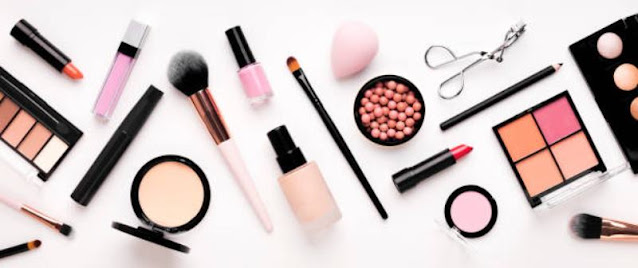- Get link
- X
- Other Apps

Trends in Beauty and Personal Care:
Natural and Organic Products:
Consumers are increasingly gravitating toward natural and
organic beauty products and seeking formulations free from harsh chemicals,
artificial fragrances, and synthetic ingredients. This trend reflects a growing
concern for personal health and environmental sustainability.
Multifunctional Products:
Busy lifestyles have fueled the demand for multifunctional
beauty products. Consumers seek multiple benefits, such as moisturizers with
SPF, a foundation with skincare properties, or lip balms with color tint. This
trend allows individuals to streamline beauty routines and save time and money.
Skincare-First Approach:
The emphasis on skincare as the foundation of beauty has
become a dominant trend. Consumers prioritize skincare routines and invest in
high-quality products targeting specific skin concerns. This shift has increased
demand for skincare ingredients like hyaluronic acid, retinol, and
antioxidants.
Inclusivity and Diversity:
Beauty brands are embracing inclusivity and diversity by
expanding their shade ranges and offering products that cater to a broader
range of skin tones and hair types. This trend promotes representation and
celebrates individual beauty, acknowledging that beauty comes in various forms.
Social Media Influence:
Social media stages like Instagram, YouTube, and TikTok
continue to have a significant impact on beauty trends. Influencers and content
creators share their product recommendations, tutorials, and beauty hacks,
shaping consumer preferences and driving sales. Brands leverage influencer
collaborations and digital marketing strategies to connect with their target
audience.
Trends in Health Beauty Care:
Clean Beauty Revolution:
Like the general beauty industry, the health beauty care
segment is experiencing a surge in clean beauty products. Consumers seek
natural, organic, and non-toxic alternatives for their health and wellness
needs. This trend extends beyond skincare and cosmetics, including personal
hygiene products, supplements, and natural remedies.
Holistic Wellness:
The health and beauty care sector is embracing a holistic
approach to well-being. Consumers are focusing on products and practices that
support their overall health, including stress reduction, sleep improvement,
and mental well-being. This trend has led to the popularity of products like
essential oils, aromatherapy, mindfulness apps, and sleep aids.
Nutricosmetics, oral beauty supplements, have gained
traction in the health beauty care industry. Consumers recognize the connection
between nutrition and external beauty, seeking supplements promoting healthy
skin, hair, and nails. Ingredients like collagen, antioxidants, vitamins, and
probiotics are popular in this category.
Personalized Health Solutions:
Personalization is a significant trend in health and beauty
care. Consumers seek customized health solutions tailored to their specific
needs and goals. This includes personalized vitamin regimens, DNA-based
skincare analysis, and wearable health-tracking devices. Technology plays a
crucial role in delivering customized health and beauty recommendations.
Sustainable and Eco-Friendly Practices:
Sustainability and eco-consciousness are integral to the
health and beauty care segment. Consumers are demanding products that are
ethically sourced, cruelty-free, and packaged in environmentally friendly
materials. Brands respond by adopting sustainable practices, reducing waste,
and supporting eco-friendly initiatives.
In conclusion, the beauty and individual care industry is
witnessing trends prioritizing natural and organic products, inclusivity, and a
skincare-first approach. Simultaneously, the health and beauty care sector embraces
clean beauty, holistic wellness, personalized solutions, and sustainable
practices. These trends reflect the evolving consumer preferences toward safer,
more sustainable, and individualized beauty and health products.
- Get link
- X
- Other Apps